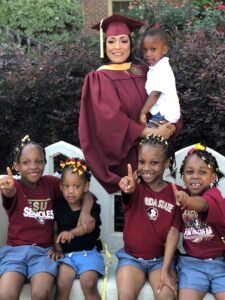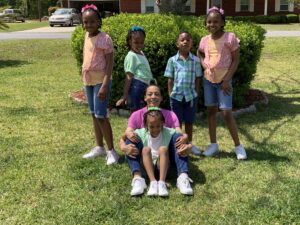
Senate Bill 80 is an attempt to reinforce effective methods that will cater to the needs of children in foster care or those who are under the supervision of the Department of Children and Families.
Since March 2, SB 80 has moved through a handful of Senate committees. If approved, it would require case record face sheets to be updated monthly and will require detailed information to keep in contact with a child’s progress, which is known as a track system in legal terms. The bill is set to be effective by Oct.1 if approved by both chambers and the governor.
It would require department officials to develop or partner with a third party to devise a reasonable plan that will allow them to use those face sheets with specific rules to determine out-of-home care tailored to a child’s basic needs.
Jazmine Williams, an elementary education student at FAMU, was adopted when she was a child. She says that she wishes DCF would have done a better job of placing her with her grandmother instead of her sibling’s mother, who was not properly fit to be her caregiver.
“I was removed from my father due to situations that I was put through. DCF placed me with my sibling’s mother knowing that I had my grandmother. Being placed with her was the worst decision they ever made. My grandma didn’t know I was with her until after the fact. After moving and going through all this I ended up having to repeat a grade. My grandma soon was able to adopt me and I was around 10 years old,” she said.
When uncontrollable situations arise children who get caught between a rock and a hard place are filled with a dark cloud of confusion and trauma that affects them deeply, especially when the system splits up siblings. SB aims to change the negative trajectory for appropriate placement.

“I feel that DCF should have never allowed my sibling’s mother to take me when they know I have my other family members down the road. Even though my adoption was a tedious process it was smooth because now I am old enough to understand what is going on. Honestly, it’s the best feeling ever to be adopted by a family member and I felt that it was best for me however I was split up from my siblings, eight sisters, and one brother,” Williams said.
One of the bill’s major objectives is holding the department or lead agency responsible for placing sibling groups together when possible — if this is in the best interest of each child.
Michelle Brantley, a FAMU alumna who is a student at FSU’s law school, believes in the ability to create change through social work as an adoptive parent. She also was adopted.
“The importance goes back to basic needs such as belonging because children need to have that belonging and sense of family and that is something where if it’s missing that is traumatizing to a child. So I think that is the most vital, where the stability of home and family is provided. Children need security and emotional support and structure and love and all of that comes from permanency,” Brantley said.
Brantley opened her heart to adopting five siblings at birth who have grown up to be her pride and joy. As someone who was adopted at a young age, she understands deeply what it feels like to feel loved by a caregiver but to still feel unwanted.
“It breaks my heart to even think there are so many kids in the system who have to feel unwanted and unloved but I thank God my kids have no idea what that is,” Brantley said.